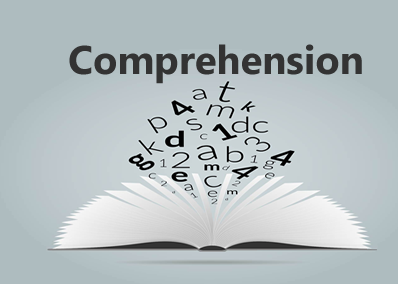Comprehension
Comprehension
The progress of a student in language is judged by his power of comprehension. It is done through by the comprehensive understanding of the unseen passage. The passage given for comprehension is followed by questions through which the students' grasp of knowledge is judged.
How to attempt subjective comprehension?
Before attempting a paragraph on comprehension, a student is advised to read it more than once to grasp the meaning of the passage in detail. It would help the student answer the questions correctly in accordance with the requirement of the examiner's intention.
(a) A student should write answers in complete sentences in his own language.
(b) For this purpose a student is supposed to possess a knowledge of function of Tenses, Modals, Voices, Clauses and Non-finite verbs.
(c) The knowledge in this field is very important to write correct and to the point answers.
(d) While writing about the theme of the passage, one is to state only what the passage is about. A summary of the passage is uncalled for.
(e) However, the title of the passage should also be derived from the main theme. The title should never be in the form of a sentence.
(f) In some competitive examinations the students are also required to answer questions on synonyms and antonyms given in the passage. It is very important to note that the meaning of the words should be chosen in the context of the theme of the passage. A student must not take into account only the literal meaning of the word, their figurative use should also be kept in mind.
Many a time the questions are based on what is implied in the passage. Direct answers are unstated. Therefore, the answers must be based on and supported by the information given in the passage under reference. In modern competitions both objective and descriptive comprehensions are set for, so as to judge the capability of the students. In this context, efficiency of the students in the field of verbal ability is indispensable.
